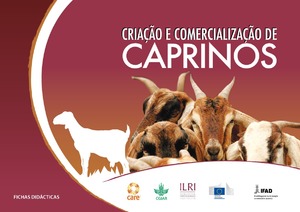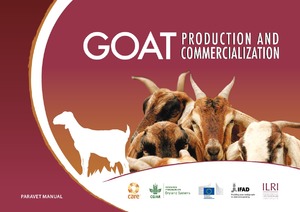Location
We seek a world of hope, tolerance and social justice, where poverty has been overcome and all people live in dignity and security.
CARE follows a set of Programming Principles in our emergency, rehabilitation and long-term development work. CARE's principles are aligned with those of many other humanitarian agencies, and include:
- Promote empowerment
- Work in partnership with others ·
- Ensure accountability and promote responsibility
- Address discrimination
- Promote the non-violent resolution of conflicts
- Seek sustainable results
Members:
Resources
Displaying 6 - 10 of 17Goat production and commercialization: Paravet manual
A potential approach to securing poor communities’ and women’s rights to land and natural resources in partnership with large scale investments in Mozambique
CARE commissioned a review of the community land delimitation and demarcation processes implemented by various organisations in Nampula province, focusing on the work of ORAM. Contains an analysis of the extent to which these programmes are assisting communities to prepare for the advent of an expected wave of large-scale investments throughout the north of the country, in the face of gas and coal discoveries and the proposed development of large-scale agribusiness ventures along the Nacala corridor.
Land Delimitation & Demarcation: Preparing communities for investment
Report assesses current practices in Mozambique with regards to land delimitation and demarcation and the extent to which they really protect communities against land grabs. Presents additional steps to be taken / piloted to increase communities’ protection against land grabs and better position and prepare them to negotiate with investors. Special attention is dedicated to the challenges facing women in this process.
Text for A Guide on How to Prepare communities for investment
Draws from the Avante Consulta tool designed for the forestry sector and includes a tool in respect to consultation processes, which are mandatory in the context of the state taking decisions in relation to the award of land and natural resource rights to external investors. Consists of a set of steps that aim to empower the communities in these consultations. Designed to be applied in situations where the co-management of natural resources is being encouraged and the poor must compete with other, often stronger, stakeholders to ensure that their rights are recognized.




